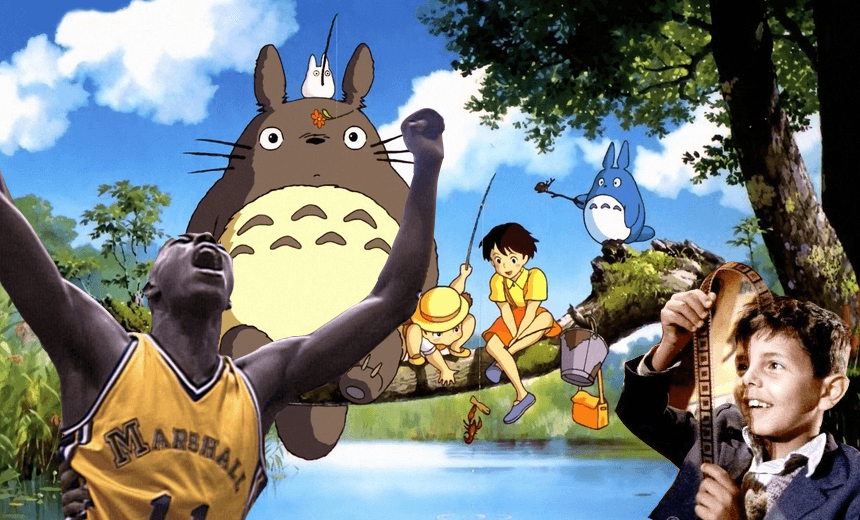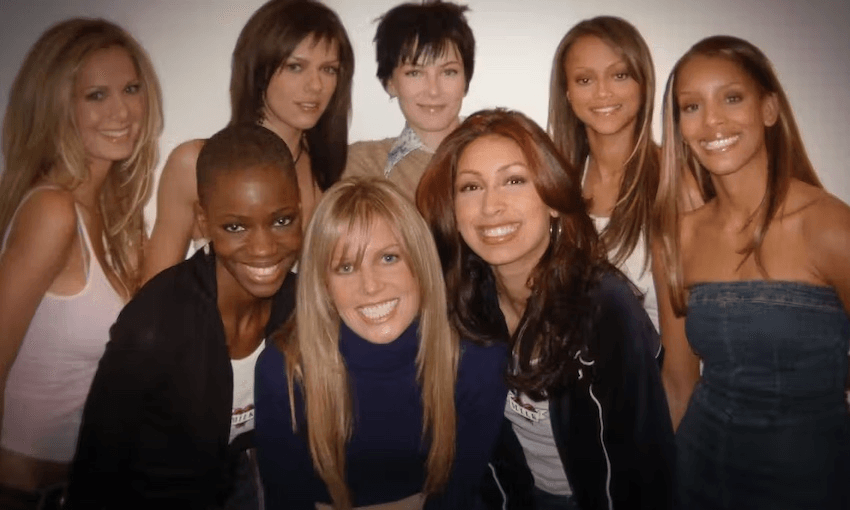With a line-up boasting everything from Miyazaki to Spike Lee, Dan Taipua suggests you look no further than Māori Television for the best in free-to-air movies.
When Māori Television launched back in 2004, it brought to the viewing public a new channel for the promotion of te reo Māori me nga tikanga Maori (Māori language and culture), delivered through high-quality and cost-effective local production.
What we also gained was the greatest free-to-air movie channel we’d ever seen, which has now expanded to on demand availability via web and mobile apps.
In its current schedule, Māori TV runs four feature films per week split into different target audiences: Friday Films (Hollywood-ish), Whānau Movie (family & kids), Saturday Feature (high-quality wide-release) and Sunday Cinema (festival/prestige). On occasion, they have also run Iti Pounamu, a compendium of locally produced short films and Tuesday Feature Documentaries.
While the channel is a vital outlet for broadcasting Māori film and other NZ releases, the channel has also committed itself to a diverse and well-curated lineup of indigenous and world cinema, independent foreign productions, monthly ‘seasons’ dedicated to certain directors, animated features and full-length documentaries.
Indeed, their kete overfloweth with a bounty of good watches at Māori TV.
The history of Māori TV’s film whakapapa surely stretches back to the 2003 appointment of Larry Parr as the station’s head of programming. Parr brought with him a strong pedigree as a producer in some of New Zealand film’s most-successful, international-reaching productions: Sleeping Dogs, Smash Palace and the David Bowie vehicle Merry Christmas Mr. Lawrence.
The artistic quality of those pictures, as well as the connection they formed with world distributors, must have had an influence on the station’s approach to programming. One of the very first memories I have as a viewer is the month-long season of Coen Brothers movies that were run back-to-back.
I’d never seen an auteur-based approach to programming and I definitely never thought I’d see Barton Fink or even The Hudsucker Proxy playing on free TV in the 2000s. It was a wonder then, and it remains one now.
There’s a real talent and dedication in the programming choices and formats that Māori TV has pursued over the years, and I’ve enjoyed month-long retrospectives of the works of Spike Lee and the Studio Ghibli productions of Hayao Miyazaki, feature-length basketball documentaries like Hoop Dreams and The Fab Five, and all-time arthouse classics like the Italian neorealist Bicycle Thieves (1947) and modern classic Cinema Paradiso (1998).
It’s not always highbrow foreign flicks at Māori TV, but it is always high quality – like the 2016 marathon of Star Trek films I spent four weeks dorking over, or the ludicrous cult 80s spy spoof Top Secret.
Thinking of highlights over the years, there’s an over-representation of certain kinds of films that aren’t always reflected through the mainstream – a kind of broadly cult-ish niche viewership where martial arts, Japanese animation, indigenous independents and sports documentaries have come to represent the flavours of our palate.
Where most people might never think of Māori viewers having a particular interest outside of Māori film productions and mainstream Hollywood, the station’s practice of curation has made its own, new kind of culture by connecting its people with histories and cultures far afield.
The culture of Māori movie viewership has become its own local treasure, with almost all of the movies screened on TV being made available online and through the official Māori Television Connect app. Movies stay on demand for varying durations but often stretch back by a week or month, meaning all New Zealanders can get free streaming access to great films. Ka rawe!



